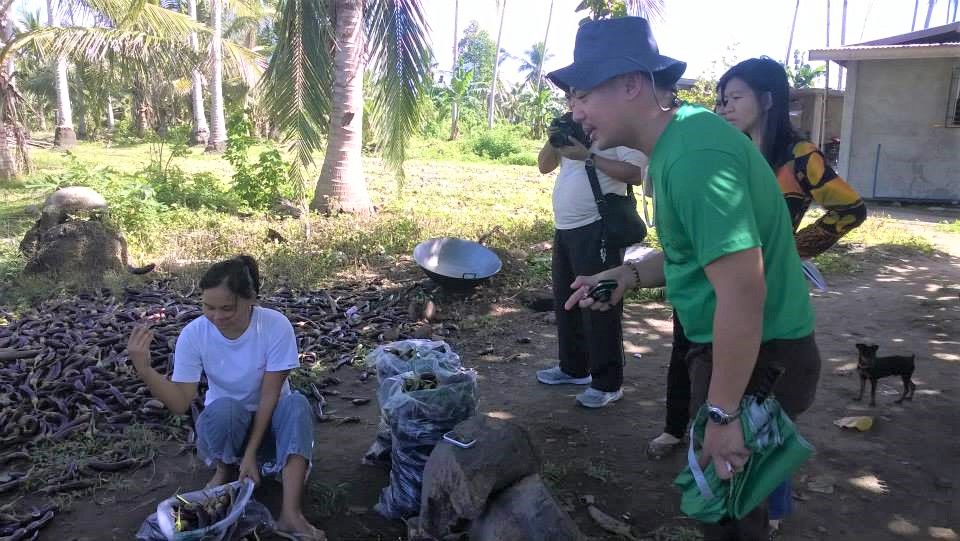
Despite encountering numerous hurdles and obstacles, a key government official remains confident that GMO eggplant will be commercialized in the Philippines.
Dr. Vivencio “Choy” Mamaril, the newly appointed director of the Bureau of Plant Industry (DA-BPI) and head of the DA Biotechnology Program Office (DA-BPO), remains positive that Bt talong an eggplant genetically engineered to resist pests will eventually reach farmers and consumers, allowing them to reap the benefits of the product of modern biotechnology.
“The country has to continue moving on, and we will move forward to advance biotechnology,”Mamaril said in an exclusive interview with this writer.
“Making Bt eggplant seeds accessible to farmers will certainly increase earnings of farmers while making the price of talong [the Philippines’ most widely planted vegetable crop] more affordable for the majority of Filipinos,” he added.
A late 2015 ruling by the Philippines’ highest court essentially turned Bt talong into a “prohibited vegetable” in that nation. It is currently commercialized in Bangladesh.
The PI Supreme Court had simultaneously nullified and invalidated the Department of Agriculture Administrative Order 8 series of 2002 (DA AO8- 2002), which for more than 20 years had served as government policy in regards to field trials, assessment, approval for propagation, and eventual commercialization of all GMOs (genetically modified organisms).
But biotechnology in the Philippines has recently taken a forward stance, as the government promulgated a new and more rigorous set of GMO regulations in the form of a Joint Department Circular (JDC).
The JDC, signed by the heads of concerned government agencies spearheaded by the Department of Agriculture (DA) and the Departments of Science and Technology (DOST), Environment and Natural Resources (DENR), Health (DOH), and Interior and Local Government (DILG), is a more rigid regulation that oversees the cultivation and marketing of GM seeds in the Philippines, Mamaril said.
He sees the government’s approbation of strict regulations that control the distribution, cultivation, and commercialization of genetically engineered seeds as a move towards the correct path.
The JDC represents a strong response to the arguments raised in the High Tribunal s December 2015 ruling, which stopped field-testing of GMOs in the country and concurrently voided DA AO8.
Mamaril noted that the JDC was crafted to address and comply with issues raised by court.
The agriculture department is currently assigned to expand membership in the Scientific and Technical Review Panel (STRP) in order to include expertise in the assessment of the possible risks of regulated GMOs to the health of humans and the environment.
The new policy is designed to be strict and clear, with procedures on the environmental safety assessment of GM crops to be cross-checked by the five government agencies involved, prior to approval for domestic propagation.
Community participation is required in the new regulation. This policy development is expected to promote and fortify the role of GMOs in improving Philippines agriculture and providing solutions to the basic problem haunting the poor: access to affordable and nutritious food.
Consequently the JDC guarantees the protection of human, plant, and animal health. That’s because of a more strict environmental scrutiny prior to release of biosafety permits, thereby responding to a loophole the High Tribunal adduced in quashing AO 8.
Mamaril, the enthusiastic plant industry head, said he never lost hope because “for over a decade now, Filipino corn farmers have been growing Bt maize (both the insect resistant and herbicide tolerant stacked trait varieties) and it has been evident that they are harvesting the bounty of GM technology.”
As a result of the bountiful harvest of the GM variety, the Philippines has a sufficiency rate of 103 percent for corn, with 80 percent of the yield absorbed by the livestock industry.
Not disappointed
Mamaril said he was not at all disappointed by the high court’s decision, even before the JDC was signed. As a matter of fact, he is happy that the High Tribunal acknowledged the existence of a National Biosafety Framework in the Philippines.
“Biotechnology is now safer, and is less likely to be criticized because of the newly effective JDC, which now serves as policy on GMO approvals,” the plant industry director said.
The DA-BPO now plans to evaluate the various technologies developed through the office’s assistance, and make those accessible to stakeholders that need the particular technology. Then there will be an exhaustive appraisal of the current status of each technology available.
The biotechnology office has supported research on the molecular characterization of fish and shellfish, as well as early detection of animal diseases. Disease-detection is essential, and is desirable to facilitate accurate and fast diagnosis. Secondly, the BPO develops guidelines to authenticate that the products are in accordance with certain quality standards.
In the meantime, GMO advocates can relish the approval of new biotech regulations in the country, which is the first step in advancing the technology.
The biggest challenge for GM champions is to always be optimistic that ultimately science shall prevail. Science will eventually triumph after all.
Biotech supporters should be perpetually attentive and vigilant in advancing their advocacy.
Marlo Asis is a 2015 Alliance for Science Global Leadership Fellow and a member of the Alliance for Science – Philippines
